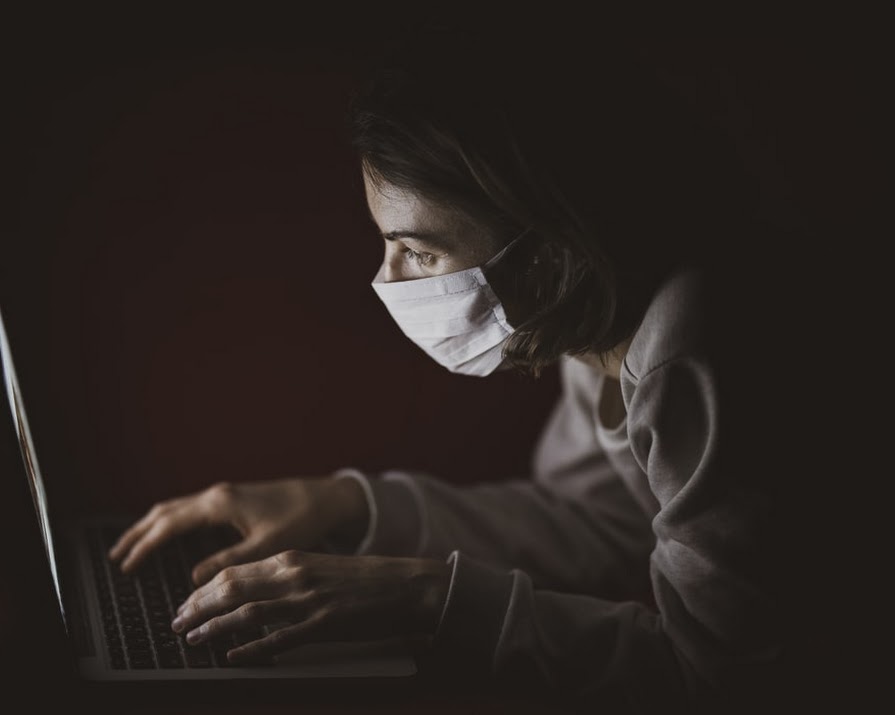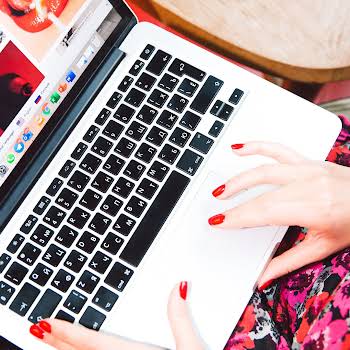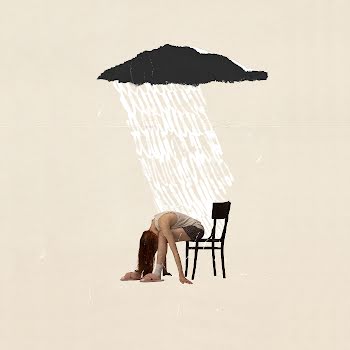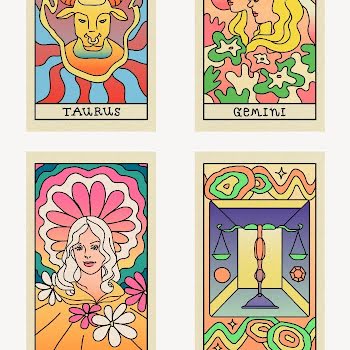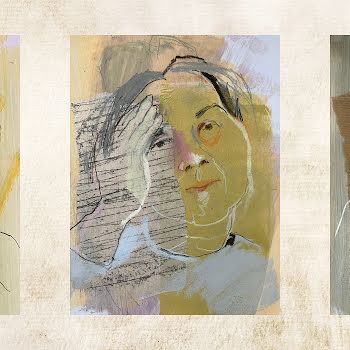
Pandemic panic: How to spot false information about Covid online (and make sure it doesn’t affect your mental health)
By Erin Lindsay
05th Oct 2020
05th Oct 2020
If you’re experiencing panic and anxiety around Covid-19, you’re not alone – and being as informed as possible is a great first step to feeling better
Since the beginning of the pandemic, false information around Covid-19 has been rampant on social media. Whether it’s a WhatsApp message or a Twitter thread, chances are you’ve consumed false information about Covid symptoms, governmental restrictions or treatments for the virus since March of this year. The question is, were you able to tell that the information wasn’t true?
According to a recent YouGov survey, 26% of people get most of their information about Covid-19 from social media – even though 62% admit that some of the information they’ve seen online later turned out to be false.
When it comes to Covid-19, the disconnect online between medically-certified and safe information, and rumours and bogus claims is becoming increasingly dangerous. Fear, anxiety and panic levels about the virus are rising across the world. To stay safe and keep your mental wellbeing in check, it’s important to recognise which information is worth following.
Burton Paul is a digital healthcare expert based in the U.K, and penned the book Is It Serious? Your Guide to Credible Health Information Online before we’d even heard of Covid-19. When the pandemic hit Europe earlier this year, the importance of Paul’s advice around recognising false information and keeping your mental health in a positive state became apparent, as 91% of people said they believe more should be done to educate and protect people on how to search for medical information online.
Here, IMAGE sat down with Paul to discuss where false information comes from, why it spreads so quickly, and most importantly, how to assess online health information to make sure it’s accurate and safe.
Where does this false information come from?
According to Paul, there’s no one reason or motivation behind creating false healthcare information. “It’s a combination of things – some may create it as a joke, some may believe this information and believe that the world needs to hear it. I don’t necessarily believe that people want to maliciously to hurt others”, he says. “But once it’s out there, the nature of social media means that some people want attention to be on them – they want to get those likes and follows, and that leads to posting false information”.
The reason that rumours or fake news about the pandemic spread so quickly is that we’re in a perfect storm, says Paul. “Firstly, as we’re all more isolated, social media has become one of the most primary and significant ways of communicating with our friends and loved ones.
On top of that, people are not aware of what is credible and what isn’t. How many people are familiar with health organisations, with their websites? They may have credible information right in front of them, but if they don’t have the tools to identify what’s real and what’s not, it can be very hard to recognise it,” he says.
How to look after your mental health during lockdown
According to a YouGov survey taken in June of this year, 54% of 2000 people surveyed said they felt anxiety, low mood and panic while using social media during lockdown. Faced with a winter of further restrictions and isolation, how can we keep our mental wellbeing in check?
According to Paul, it’s about preparing your mindset as much as possible. “If you view the potential lockdowns as a challenge, rather than immediately identifying it as a stressful situation, it will be easier to deal with,” he says.
For Paul, two things are essential in keeping your mental health as well as possible. Number one: stay connected. “Whether it’s through social media, over the phone or texting, make sure you are keeping in regular contact with your loved ones, and talking to people often.”
Number two: keep a routine – and take inspiration from the movies. “If you’ve ever seen About a Boy, where Hugh Grant talks about dividing his day into ‘pockets of time’, that’s exactly what I’m getting at. Find what makes you happy, develop your routine around that and stick to it. The minute you fall out of routine, the ‘never-ending’ mentality of the pandemic ensues, which will affect your mood and increase your anxiety. Keep on track as much as you can.”
Paul also advises turning the news off once in a while. “You do not have to watch it every day,” he says. “The beauty of the internet is that you can pick when you want to sit down and find information. You don’t have to feel bombarded by the six o’clock news every night. You should always feel able to switch off.”
If you do find yourself struggling, remember that you are not alone. Samaritans are available 24 hours a day, and there are resources available online to inform and comfort. As Paul says, the one positive of entering lockdown again is that we know what to expect. “One of the most important things when facing any challenge is awareness – we understand these restrictions now, this isn’t a rude awakening. Try and focus on the positives; research and new developments are happening all the time and we understand this virus better than ever before. We can better prepare and better approach Covid-19 than we could at the beginning of this year, which is positive.”
Your checklist for spotting misinformation online
If you want to be better equipped for spotting false or inaccurate medical information online, Paul has plenty of tips to start with.
On websites
- Approved: Check if a website has been approved by a medical professional or clinical organisation. Sites like the Mayo Clinic, which is one of the best health information websites out there, will have approval from medical professionals.
- Advice: A credible website will not claim to replace the advice of a medical professional. If a website is advising you to ignore your doctor or government health team’s advice, then it is most likely not to be trusted.
- HON: The Health On the Net Foundation (HON) is a non-government international organisation (www.hon.ch) that accredits health information websites and the accuracy of its content. Its logo is displayed on the bottom of the main page of an accredited website.
- Free & Unbiased: A credible website should not be selling you products or charging you for a diagnosis or for checking symptoms. Only a medical professional can provide a diagnosis.
- URL ending: Websites ending in .org or .gov are usually secure, as they are typically not-for-profit organisations and government-run organisations respectively (but not always). Websites ending in .ac (in the UK) or .edu (in the US) or .edu.au (in Australia) are run by academic institutions such as universities and will certainly hold credible information.
- Cross check: Always cross check the information – if the same material is repeated across other health information websites, then it would be highly likely to be accurate, reliable and credible.
On social media
- Emotions: Many times, if a post makes you sad or angry, you should double-check the source. Sometimes, people who share misinformation look to trigger emotional buttons of fear, anxiety, anger, sadness and so on, to help get their post shared, regardless of whether it is true or not.
- Sceptical: Don’t believe everything you read. Question the source, and of course, always stick to credible sources. Ask questions like ‘does the image look Photoshopped?’ Does this seem unrealistic or unbelievable?’
- Cross-check: Check for confirmation across mainstream media – if you don’t see this content on any mainstream media sites or channels, chances are it is fake.
- Fact-check: Here are three well-known fact-checking websites, where you can search for a post you’re sceptical of and see if it is true or fake: https://www.politifact.
com, https://www.snopes.com & https://www.factcheck.org - Check the URL: Does the URL appear unusual? Some fake news websites try to mimic the URL and/or logo, and design of legitimate news websites in order to trick readers. Compare the link against the homepage of the real website – do they match up?
Read more: Explainer: Here’s what Level 5 restrictions will look like in Ireland
Read more: This warming roasted butternut squash and apple soup is the perfect remedy for a dreary autumn day
Read more: Has the pandemic changed how we deal with ageing?











